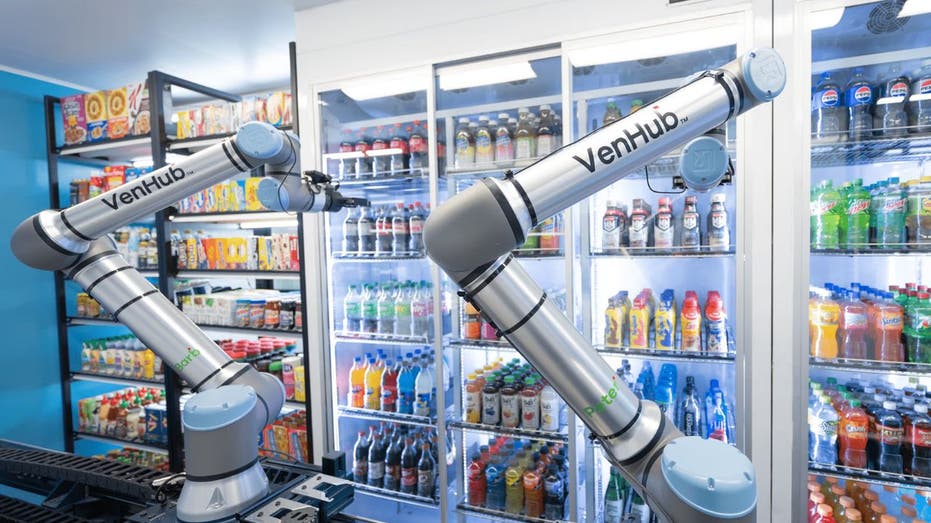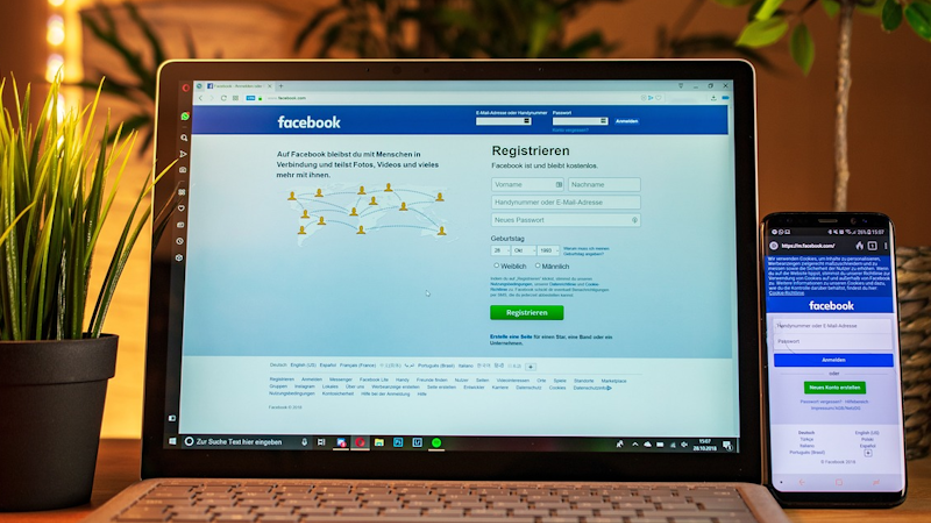📰 Robot-run store VenHub is changing the future of shopping

VenHub is a fully autonomous, AI-powered smart store at the LAX/Metro Transit Center in Los Angeles where robotic arms handle product selection and delivery without human employees. The store is open 24/7 and designed for high-traffic environments like transit centers and airports. Customers use the VenHub app to place orders, pay digitally, and receive items through a secure pickup window within about 90 seconds. The store’s foundation includes robotics, artificial intelligence, and real-time analytics to optimize operations and offer a seamless shopping experience. While automation may replace some traditional retail roles, new opportunities are emerging in tech-focused positions.
📰 How I was tricked and locked out of Facebook after being hacked

The article discusses a real-life example of a Facebook scam where a person was impersonated by a hacker who asked for help in recovering their account. The victim ended up sending a recovery code, allowing the hacker to take over their account and access their personal information. The victim tried to recover their account but faced difficulties with Facebook’s support system. The hacker also gained access to the victim’s Facebook groups and deleted posts and photos. The victim sought help from the police but was advised to report the incident to IC3.gov for cybercrime assistance.
The article provides steps on how to address a compromised Facebook account, including reporting the hack to Facebook, removing the hacker from groups, and enabling two-factor authentication. It warns against falling for fake support numbers and remote access scams. The importance of reporting cyber incidents to authorities like IC3.gov and seeking help from local cybersecurity experts is emphasized. Tips on safeguarding online accounts, changing passwords, enabling 2FA, and using antivirus software are also shared.
The article concludes with advice on protecting personal information online, such as not sharing passwords or verification codes, verifying identities through multiple channels, and being cautious of urgent requests for personal data. It suggests considering personal data removal services to reduce exposure to scams and identity theft. The importance of enabling 2FA on Facebook and staying vigilant against suspicious requests is reiterated.
📰 How 432 robots are relocating a 7,500-ton historic building

A historic building in Shanghai is being moved by robots, attracting global attention due to its massive size and unique relocation method. The Huayanli complex, built in the 1920s and 1930s, is a classic example of shikumen architecture in Shanghai’s historic Zhangyuan area. The relocation is part of a project to create a three-story underground center with cultural and commercial spaces, a parking garage, and a transportation hub. Engineers are using 432 small robots to lift and move the building slowly each day, navigating narrow alleys and avoiding damage to historic structures. The project showcases a balance between preserving heritage and embracing modern development, offering a glimpse into the future of urban preservation and innovation.
📰 5.4 million patient records exposed in healthcare data breach

Software as a Service (SaaS) has become prevalent in various industries, including healthcare, allowing online access to software through subscriptions. However, recent data breaches linked to third-party SaaS providers have raised concerns. One significant breach involved Episource, exposing sensitive health information of over 5 million individuals in the US. The stolen data included names, contact details, Social Security numbers, Medicaid IDs, and medical histories. Healthcare data breaches can lead to serious consequences like identity theft and fraud, prompting the need for protective measures such as identity theft services, data removal services, strong antivirus software, two-factor authentication, and caution with mailbox communications. The indirect relationship between patients, healthcare providers, and third-party vendors like Episource complicates accountability and transparency in cybersecurity practices within the healthcare industry.
📰 New PayPal scam uses real emails to trick you

A new PayPal phishing scam is circulating, appearing highly convincing and catching even security-conscious users off guard. Unlike typical scams, this one uses PayPal’s own email system to send realistic-looking alerts. The scam involves fake Venmo accounts stealing donations from real charities, exploiting real PayPal features to trigger legitimate emails and bypass security filters. Scammers create a sense of urgency by claiming new addresses were added or large payments are being processed, leading to follow-up attacks pretending to be PayPal support. To stay safe, avoid clicking links in suspicious emails, enable two-factor authentication, use a password manager, check your account manually, report scams, and consider using a personal data removal service.
0개의 댓글